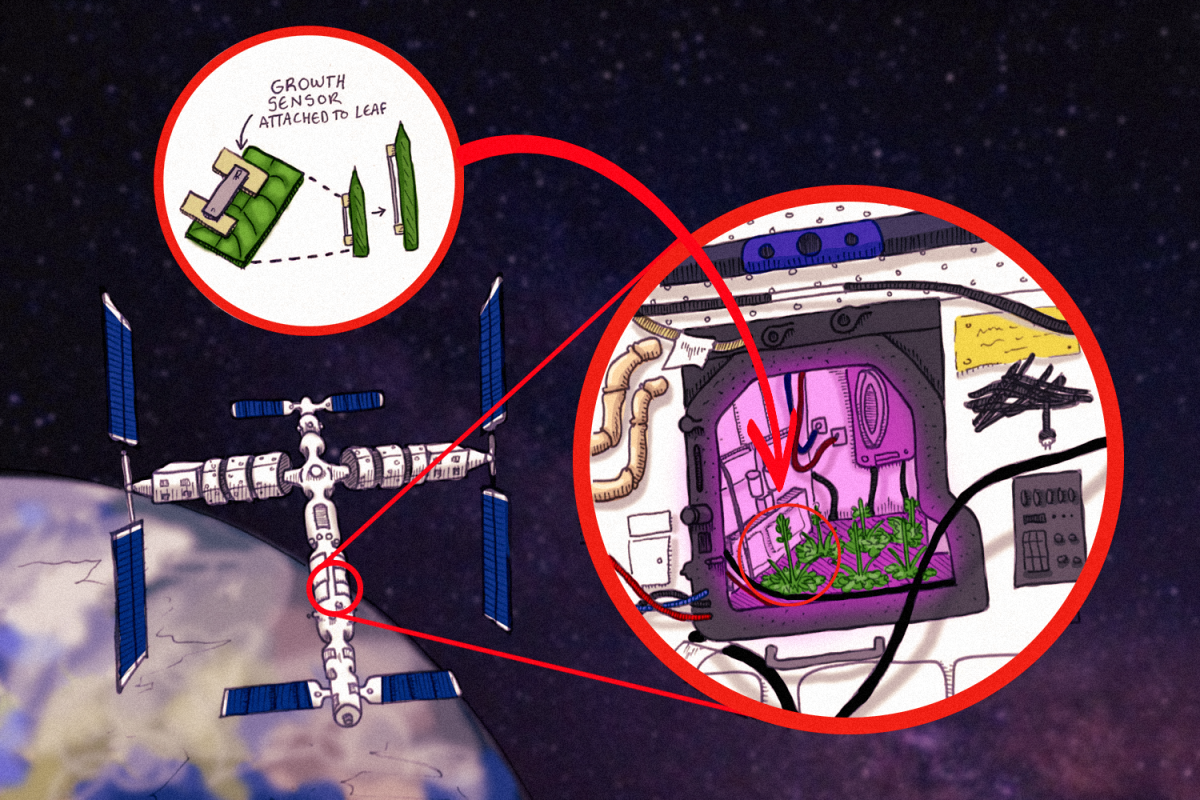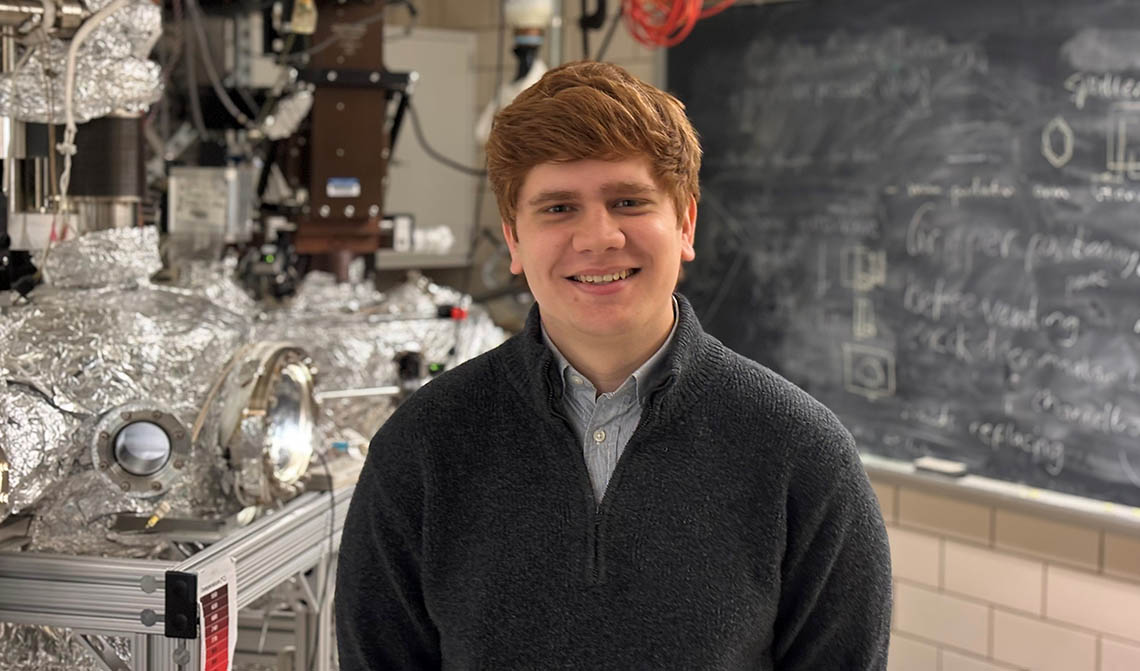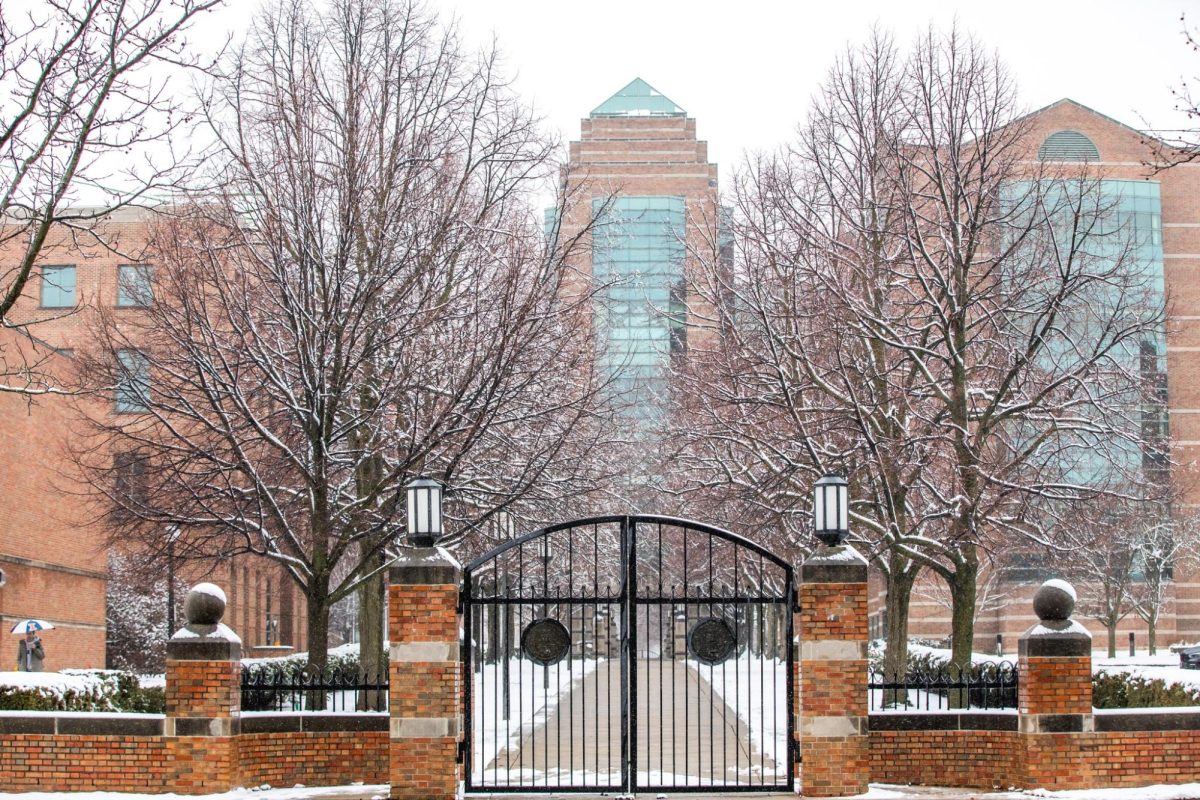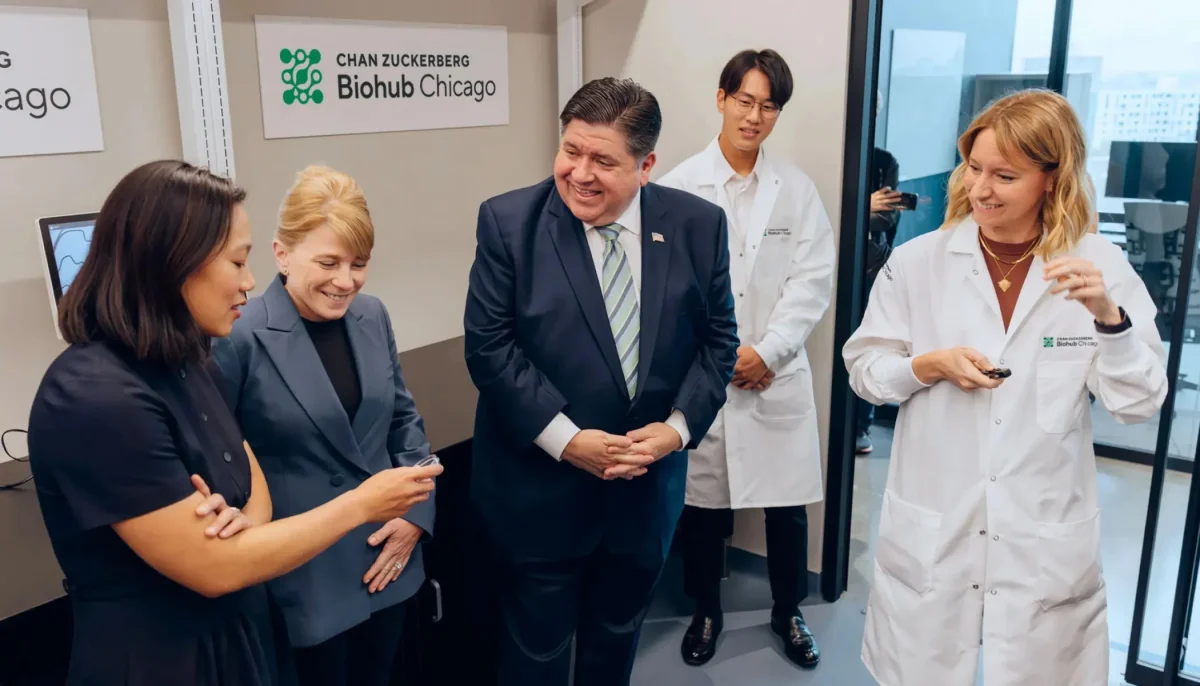Ying Diao, professor in Engineering, and her team have developed an autonomous plant growth monitor that may give rise to advanced agricultural practices both in space and in challenging climates on Earth.
Their advancement comes after a three-year research project that was primarily funded by an Early Career Faculty grant awarded to Diao by the National Aeronautics and Space Administration in 2020. The Beckman Institute provided partial support.
Diao discussed the team’s latest publication and how it could significantly enhance our understanding of plant biology in diverse environments. This could lead to more resilient crop systems for future generations — both on our planet and beyond. The team’s device is SPEARS2 — a stretchable-polymer-electronics-based autonomous remote strain sensor. SPEARS2 is a noninvasive plant growth monitor that can continuously and remotely track growth in real time.
“We are interested in applying stretchable and printable electronics to plants, and this is motivated by a need that has been articulated by NASA,” Diao said. “The idea is that ultimately we may need to move to outer space; for example, Mars.”
Diao likened the group’s long-term goal to the movie “The Martian,” in which an astronaut is left alone on Mars and finds a way to grow potatoes to sustain himself. “On long-term space missions, astronauts tend to get sick of eating compressed and dehydrated foods all the time – they need fresh food,” Diao said. “We would like to be able to grow vegetables on Mars.”
Get The Daily Illini in your inbox!
Diao emphasized the need for fresh produce on long-term space missions, highlighting the role of SPEARS2 in autonomously measuring plant growth. This not only saves astronauts effort but also provides crucial data for improving the plants’ cultivation environment.
“We could help astronauts save time on physically monitoring the plant growth,” Diao said. “The data from the sensor could also inform the astronauts how to best optimize the environment in which the plants are growing, which is very distinct from their natural habitat.”
The polymers that make up the sensor are stretchable electrical resistors, and the device is attached to a plant like a Band-Aid. As the plant grows, the device stretches with it, and as it stretches, its electrical resistance increases exponentially.
“We can use these resistance measurements to monitor the growth rate and autonomously read out and transmit the data,” Diao said. “It provides a very high rate of measurement, which could allow us to detect very nuanced changes in the plant’s physiology.”
The team is trying to combat problems with traditional methods of measuring plant growth — they are not exceptionally precise, and they are labor-intensive processes that may involve removing certain parts of the plant and disturbing its natural growth.
“In this case, the sensors physically grow with the plants, without imposing much force on them,” Diao said. “The plants don’t actually feel that there is a sensor on them, and so it doesn’t impede their growth or photosynthesis.”
Diao acknowledged the hard work and perseverance of Siqing Wang, a graduate student who works in her lab and the lead author of the publication.
“We faced many technical challenges, and the endeavor ended up taking much more time than initially expected,” Diao said. “Siqing was extremely resilient, and he really did the work. Developing technology is highly difficult, so I appreciate his dedication.”
Diao and her team’s work could transform agriculture, enabling growth monitoring in extreme climates and space. In the future, they plan to develop a method of fully 3D-printing the entire device. They also plan to enable the device to monitor growth in three dimensions, as currently, it can only measure vertical growth.
Other prestigious honors Diao has earned include the Early Career Award from the National Science Foundation in 2017 and being named an Emerging Investigator by the Royal Society of Chemistry in 2020, among others.
“We are in the midst of a biotechnology and nanotechnology revolution, and we are glad to be part of that revolution,” Diao said.







